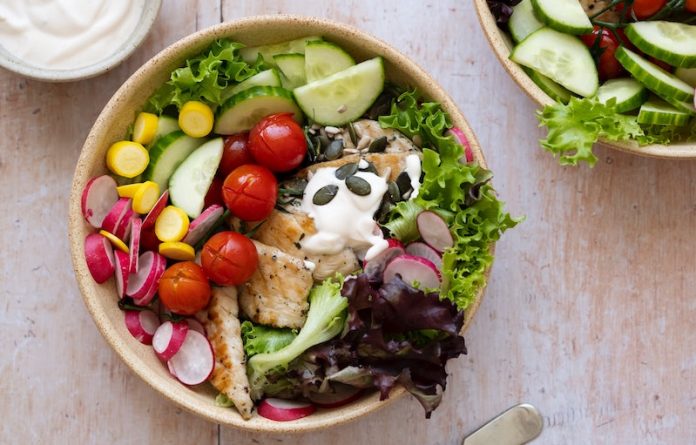
Cardiovascular disease (CVD) remains the leading cause of death in the United States, claiming more than 800,000 lives annually.
A healthy diet is one key lifestyle strategy to reduce CVD risk factors, including high blood pressure and cholesterol levels, and ultimately prevent atherosclerotic heart disease—or the hardening and narrowing of the arteries caused by fatty buildup that can lead to heart attack and stroke.
However, there is scarce data to guide patients’ decisions as to which heart-healthy diet to adopt.
In a study from Beth Israel Deaconess Medical Center, scientists found a healthy diet can lower heart disease risk by 10%.
They acquired data from 459 adults aged 22 to 75 who participated in the original DASH trial between 1994 and 1996.
They compared the effects of three eating patterns on patients’ risk of experiencing a cardiovascular event within the next ten years—the Dietary Approaches to Stop Hypertension (DASH) diet, a diet rich in fruits and vegetables, and the Western diet that is typically low in fruits and vegetables while high in fat and sodium.
Participants—who were roughly half women and half Black—were randomized to one of three diets for eight weeks. The control diet was high in total fat, saturated fat, and cholesterol.
The fruit and vegetable diet provided more produce but did not otherwise significantly differ from the control diet.
The DASH diet also provided more fruit and vegetables but emphasized more whole grains, lean proteins, nuts, and low-fat dairy while reducing fat, saturated fat, cholesterol, and sugar.
The team found that while the DASH and fruit/vegetable diets each reduced risk scores by about 10% over an eight-week period, the DASH diet conferred additional benefits for women and Black adults compared to a Western diet.
The study suggests that the benefits associated with these diets may vary by sex and race.
While a diet rich in fruits and vegetables produced reductions in risk for women and Black participants, the effect of the DASH diet was twice as large in women and four times as large in Black adults.
If you care about nutrition, please read studies that a low-carb diet could increase overall cancer risk, and vitamin D supplements strongly reduce cancer death.
For more information about nutrition, please see recent studies that olive oil may help you live longer, and vitamin D could help lower the risk of autoimmune diseases.
The study was conducted by Stephen P. Jurashcek et al and published in the American Journal of Cardiology.
Copyright © 2022 Knowridge Science Report. All rights reserved.



